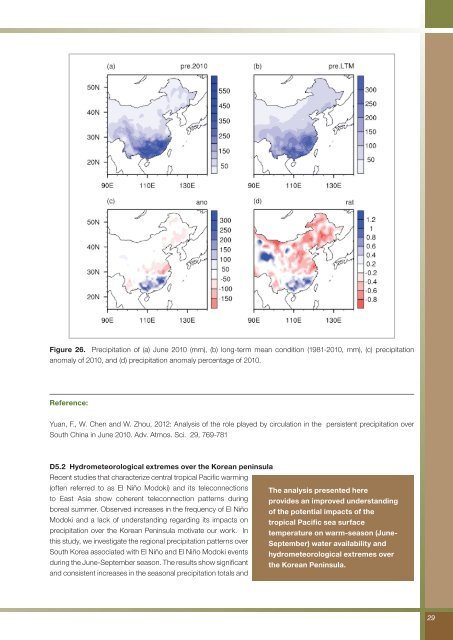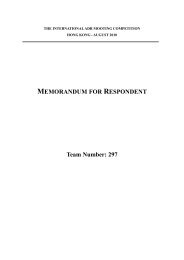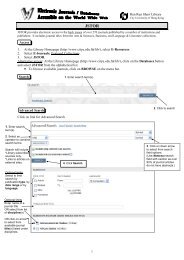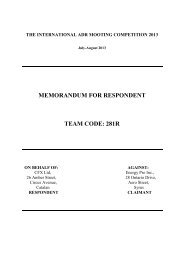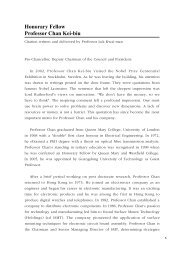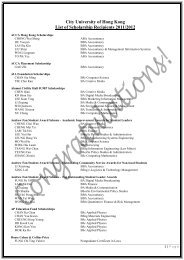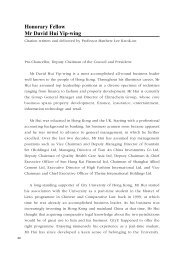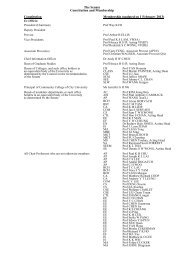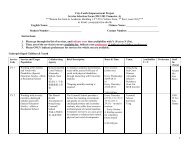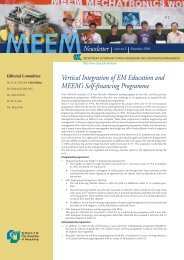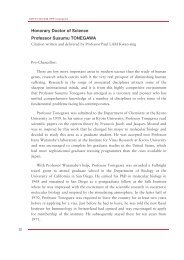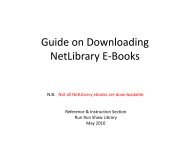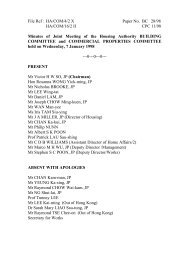Annual Report 2012 - City University of Hong Kong
Annual Report 2012 - City University of Hong Kong
Annual Report 2012 - City University of Hong Kong
You also want an ePaper? Increase the reach of your titles
YUMPU automatically turns print PDFs into web optimized ePapers that Google loves.
Figure 26. Precipitation <strong>of</strong> (a) June 2010 (mm), (b) long-term mean condition (1981-2010, mm), (c) precipitation<br />
anomaly <strong>of</strong> 2010, and (d) precipitation anomaly percentage <strong>of</strong> 2010.<br />
Reference:<br />
Yuan, F., W. Chen and W. Zhou, <strong>2012</strong>: Analysis <strong>of</strong> the role played by circulation in the persistent precipitation over<br />
South China in June 2010. Adv. Atmos. Sci. 29, 769-781<br />
D5.2 Hydrometeorological extremes over the Korean peninsula<br />
Recent studies that characterize central tropical Pacific warming<br />
(<strong>of</strong>ten referred to as El Niño Modoki) and its teleconnections<br />
to East Asia show coherent teleconnection patterns during<br />
boreal summer. Observed increases in the frequency <strong>of</strong> El Niño<br />
Modoki and a lack <strong>of</strong> understanding regarding its impacts on<br />
precipitation over the Korean Peninsula motivate our work. In<br />
this study, we investigate the regional precipitation patterns over<br />
South Korea associated with El Niño and El Niño Modoki events<br />
during the June-September season. The results show significant<br />
and consistent increases in the seasonal precipitation totals and<br />
The analysis presented here<br />
provides an improved understanding<br />
<strong>of</strong> the potential impacts <strong>of</strong> the<br />
tropical Pacific sea surface<br />
temperature on warm-season (June-<br />
September) water availability and<br />
hydrometeorological extremes over<br />
the Korean Peninsula.<br />
29


